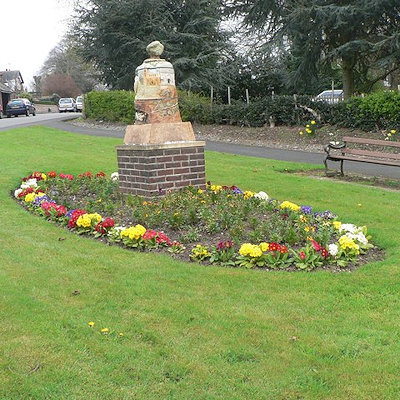
Like us on Facebook
PLACE NAMES


 
|
| Ibstock
|  |
|
|
The Domesday Book of 1086 records Ibstock as a hamlet with six ploughlands. The parish along with a grange held by the Cistercian Garendon Abbey, has a long early association with the Burtons of Bourton-on-Dunsmore in Warwickshire. Early in the 17th century Sir William Stafford of Blatherwick in Northamptonshire owned the manor of Ibstock.
The toponym Ibstock could be a derivative of Ibestoche meaning the dairy farm of Ibba, which is an Old English personal name also found in other toponyms.
The Church of England parish church of Saint Denys was built entirely in the early 14th century. It is an Decorated Gothic building with a west tower and recessed spire. The nave has two aisles; the north with conventional octagonal piers but the south with less usual hexagonal ones. The rectory is Georgian and has a porch with four Tuscan columns.
William Laud, later Archbishop of Canterbury, supporter of the divine right of kings and author of the Laudian reforms held the living here 1617-26. At the outbreak of the English Civil War in 1642, John Lufton, then Rector of Ibstock, was accused in the House of Commons of interrupting the execution of the militia ordinance. His living was sequestrated by the County Committee in August 1646.
The parish of Ibstock formerly included the dependent chapelries of Donington le Heath and Hugglescote but the increase of population led to the establishment of a separate ecclesiastical parish in the 19th century.
Ibstock is a former coal mining community.
In the 19th century a branch of the Ashby and Nuneaton Joint Railway was built through the area and Heather & Ibstock railway station was opened to serve the village. Passenger services ended in 1931, with the line through to Coalville East closing completely in 1964, prior to the publication of the Reshaping of British Railways report. The station master's house on Station Road survives.
|
 Feel free to Email me any additions or corrections Feel free to Email me any additions or corrections
LINKS AVAILABLE TO YOUR SITE
| |





